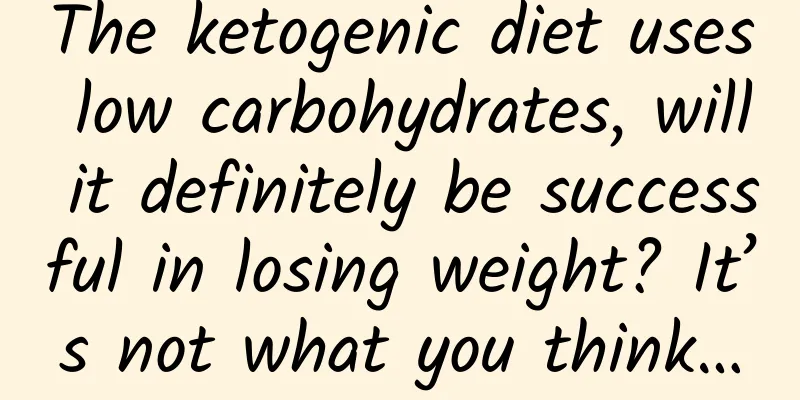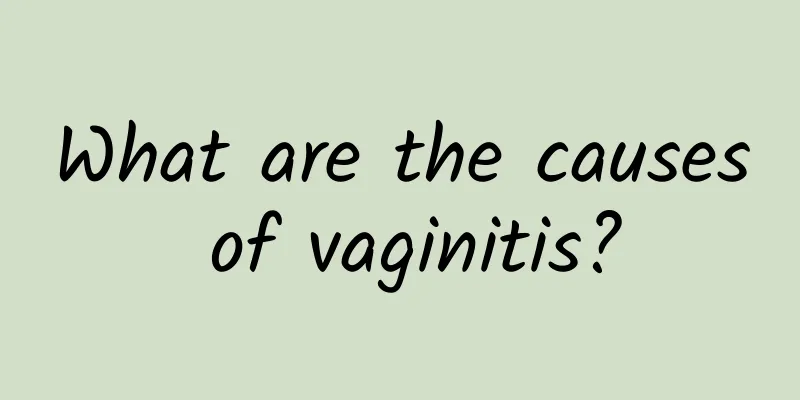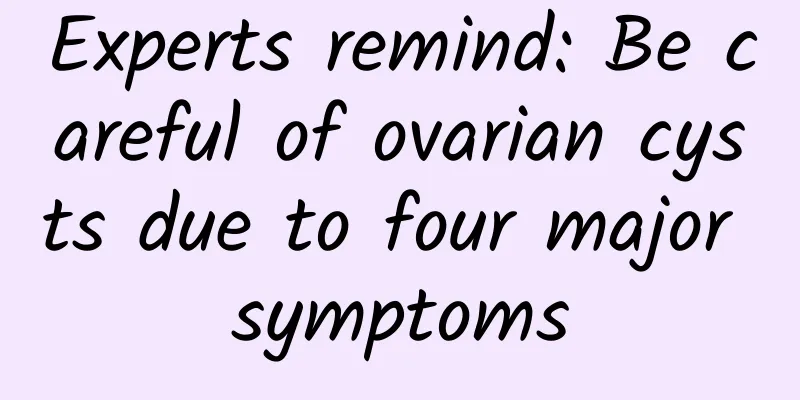The ketogenic diet uses low carbohydrates, will it definitely be successful in losing weight? It’s not what you think…

|
Do you have some "minor ailments", including poor sleep, constipation, back pain, lack of energy, or abnormal test indicators of acid glyceride, blood sugar or cholesterol? In fact, many diseases are caused by diet! In particular, the concept of "food is the first necessity of the people" is deeply rooted. Diet is not only important, but eating the right food is even more crucial! The most worrying thing hidden behind the desire for food is obesity, which immediately makes people think of consuming too much carbohydrates, especially refined foods and sugar as the culprit. As a result, the "ketogenic diet" that emphasizes low carbohydrates and high fat has become popular. Which concepts are most beneficial to health? Could obesity be caused by eating too many carbohydrates? From the World Health Organization's ongoing research on the issue of global obesity, we can find that the proportion of obese people in the world has increased three times from 1975 to the present. Judging from the research data, the reason for the rapid growth of severe obesity is not a matter of "quantity" of eating too much, but may be caused by consuming too much carbohydrates, especially refined foods and sugars. Jeffrey H. Mindich, a well-known news anchor and media person, said in his new book "Jeffrey H. Mindich's Health Decoded" that in view of this, many media and people began to "demonize" carbohydrates and advocated a low-carbohydrate diet. According to them, as long as you eat low-carbohydrate foods and eat as much fat as you like, your body will naturally become slim and healthy. The currently popular "ketogenic diet" is a typical example. The ketogenic diet is a low-carbohydrate diet, which has sparked discussion The rapid and booming development of low-carbohydrate diets has attracted the attention and surprise of many people because it goes against the eating habits of the healthiest and longest-lived people in the world. These long-lived people eat high-carbohydrate foods, including: unrefined whole grains, beans, fruits, vegetables, etc., which do not contain high amounts of fat, but they do not have obesity problems, let alone severe obesity. These foods are almost the exact opposite of what the keto diet advocates. Whole grains, beans, vegetables, fruits, etc. These foods are rich in dietary fiber, which slows down their digestion and the speed at which glucose enters the bloodstream is also very slow, making it less likely to make you fat. Bread, cake, white rice and white noodles... etc. These foods have no dietary fiber. The sugars they contain are easily digested by the body and quickly enter the blood. They cannot be effectively used and stored by the body. They may even burden the body and cause chronic inflammation or excessive insulin. In fact, after carbohydrates enter the body, they are broken down into glucose, a nutrient that the body uses to make energy and is important for brain growth and development. Excess glucose that is not used by the body will be stored in the liver and muscles as "glycogen". When the amount of glucose stored is too much and exceeds the load of the liver and muscles, it will be converted into fat. Whether you gain weight depends on what kind of carbohydrates you eat When hearing that glucose will be converted into fat, many people will think that it is bad and the body will get fat! Min Jiehui said that in fact, whether you will gain weight depends on what type of carbohydrates you eat. If the carbohydrates you eat do not come from refined starch, but from whole grains, beans, vegetables, fruits, etc., these foods are rich in dietary fiber, which will slow down their digestion and the speed at which glucose enters the blood will also be very slow, so it is less likely to gain weight. In addition, the body can also absorb various nutrients that are beneficial to health from these foods, such as vitamins, minerals, antioxidants and phytochemicals. If the carbohydrates you eat come from refined starch or sugars, such as bread, cake, white rice and white noodles, these foods have no dietary fiber, and the sugars they contain are easily digested by the body and quickly enter the blood. They cannot be effectively used and stored by the body, and may even burden the body, causing chronic inflammation or excessive insulin. These excess glucose will eventually be converted into fat storage, forming obesity. Reduce refined starch and eat whole grains such as oats, quinoa, millet, etc. In order to avoid harm to your health, the most important thing to do is to eat whole grains as your staple food rather than refined starches. Although brown rice tastes different from white rice, it not only tastes better if you chew it slowly, but its nutritional value is much higher than white rice which only contains starch. In addition, whole grains such as oats, quinoa, millet, wild rice, buckwheat, etc. are rich in nutrients and can be used as daily staple foods. Others, such as sweet potatoes and taro, although listed as vegetables, are the main food source for many traditional ethnic groups. Both contain healthy carbohydrates and a variety of nutrients, and are beneficial to health. Oats, quinoa, millet, wild rice, buckwheat, etc. These whole grain foods are rich in nutrients and can be used as daily staple foods. Beware the hidden "sugar crisis"! Moderate consumption of low-GI fruits In addition, there is also the "sugar crisis" hidden in our lives that causes obesity! It is an indisputable fact that excessive sugar intake harms the health of people around the world. In view of this, in 2014 the World Health Organization proposed a sugar reduction recommendation standard, lowering the original recommendation that daily sugar intake should not exceed 10% of total calories to 5%. On average, each person should reduce their sugar intake by about 6 teaspoons per day, which is about 25 grams. How do you know which foods are high in sugar and how can you avoid them? The most convenient way is to read the nutrition information on the packaging. Like other advanced countries, Taiwan's Ministry of Health and Welfare requires food companies to indicate the nutritional content on the packaging in accordance with the law. Therefore, before purchasing or consuming, be sure to read the nutrition information carefully to know how many grams of sugar you have consumed. You know that eating sugary foods is bad for your health, but you still want to eat some sweets. What should you do? Fruits with a low glycemic index (GI) are perfect desserts and are rich in dietary fiber. They enter the blood slowly and are unlikely to cause endocrine disorders in sugar metabolism. They also contain a lot of vitamins, minerals, and antioxidants. |
Recommend
What are the reactions to miscarriage? There are 3 reactions
Abortion is an abnormal phenomenon. Patients will...
What are the symptoms of cervical erosion?
What are the symptoms of cervical erosion? Cervic...
Regular sit-ups can effectively prevent pelvic inflammatory disease
Studies have shown that doing sit-ups regularly c...
Balcony farmers' most "homely" dwarf rice
Want to experience the fun of growing rice on you...
What is adenomyosis and what causes it
Adenomyosis is the most common gynecological dise...
Keep warm by jogging! Winter Sports Life Tips
In winter, you don’t want to go out and just want...
Will the cure of uterine fibroids affect fertility?
Will the cure of uterine fibroids affect fertilit...
How to check for premature ovarian failure
As we all know, female ovaries are mainly used fo...
Doctors do not recommend taking amoxicillin for ordinary abortions. Under what circumstances can you take amoxicillin after an abortion?
If it is a normal abortion and there is no infect...
What medicine can women take to cure cervical erosion? 4 folk remedies effectively treat cervical erosion
In life, many people often suffer from cervical e...
Do you know what the common hazards of ovarian cysts are?
Do you know what are the specific hazards of ovar...
Can recurrent miscarriage be cured? How should it be treated?
In fact, the chance of recurrent miscarriage is q...
Why does ovulation bleeding occur?
Why does ovulation bleeding occur? Many couples w...
Introducing three methods of treating adnexitis
Do you know the methods of treating adnexitis? Th...
Don’t you get tired of eating bananas and soy milk? Eat 2 light meals after exercise to get more complete nutritional supplements!
You get off work at 6pm, change into sportswear a...









